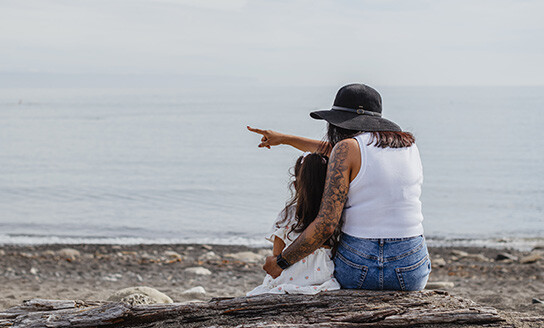
07 August 2025
By Dr Zoë Tipa
While the public’s attention may be focussed on the current Royal Commission of Inquiry into Covid-19, another Covid event is quietly taking place in schools and childcare centres across the country.
Five years after the first lockdown, the first ‘Covid babies’ have started school. This is a population that reached their significant developmental milestones at an extraordinary time – and we are witnessing the impact of this.
The Royal Commission of Inquiry COVID-19 Lessons Learnt Phase One report noted that the pandemic continues to have significant, complex, and far-reaching impacts on people, whānau and communities. It went on to add that the “full extent of COVID-19’s effects on children and young people may not be understood for some time”.The pandemic’s impact on children is just one of the many issues raised in the report, but this is front of mind for Whānau Āwhina Plunket.
As Aotearoa New Zealand’s largest provider of services to support the health and wellbeing of tamariki aged up to five, we see three-quarters of all new babies across the country, including nearly six out of 10 Māori pēpi.
We know that Covid lockdowns meant the environment and socialisation opportunities for these tamariki were limited and social interactions are hugely important to developing social and emotional intelligence. During those key years, their world was often restricted to a limited number of people inside their home and those strangers they did see were likely to be wearing a mask. Many of these children have also grown up in a stressed household where the people they did have contact with navigated illness, financial pressures and more.
At Plunket we are now witnessing the ‘long tail’ of Covid in these tamariki who missed out on a ‘typical’ childhood. The children we see often have increased anxiety, limited social skills, less ability to regulate their emotions and have often had more screen- based than face-to-face interactions.
As the report notes: “for many individuals, families, households and communities, the pandemic is not over. They continue to struggle with its consequences – long COVID, loss of learning, mental health issues and more.”
Our own nationwide services to support babies and families, including our Well Child Tamariki Ora health checks were disrupted by the pandemic. We were not classified as an essential service so had to suspend our face-to-face services, and our own staff were affected by illness. Like so many organisations at this time, we needed to pivot to where we could best focus our efforts to support the families who needed us most.
We prioritised babies from 0-3 months and clients who had the highest-needs at this time with a virtual version of our Well Child services – while also offering other online support options.
Since the pandemic, we have worked hard to optimise access to our services for whānau and in some cases, rebuild trust in health services. For example, we have stepped up our core visits to older preschoolers to ensure that any health issues that may have been missed during this time are identified and referrals to other services are made if needed.
As the World Health Organisation noted as early as 2020: “The impact of the pandemic extends far beyond the sphere of physical health. The pandemic is having profound effects on children’s mental well-being, their social development, their safety, their privacy, their economic security, and beyond.”
This is the legacy of Covid-19 that we are all living with. And, as the Royal Commission notes, there will be another pandemic – we just don’t know when or what form it will take.
What are our lessons learnt in terms of protecting the wellbeing of our preschool children – and how can we ensure they are not affected in the same way again?
It is clear we need to start building resilience now. This means investing in developmental support and tools for tamariki affected by any future pandemic.
It means ensuring these children experience activities that support them to grow and develop and expand their world beyond their main caregiver and into their wider community. It means considering how to help parents and caregivers to support their tamariki to learn and build their capability to socialise.
For example, whānau can support their children’s language development by using everyday household items such as building blocks, or interactive toys to encourage play and active movement. While engaging in play, whānau can ask a variety of questions such as “What is this?”, “Is that a car?”, or “What will happen next?” to support ongoing language development which helps with confidence when socialising.
Investment is developmental support is vital if we are to help minimise the impact that any future pandemic will have on our children and their families. In all the talk of lessons learnt from Covid-19, and in any discussion about future pandemic planning, let’s not forget our citizens of the future.
This article first appeared on Stuff.co.nz
